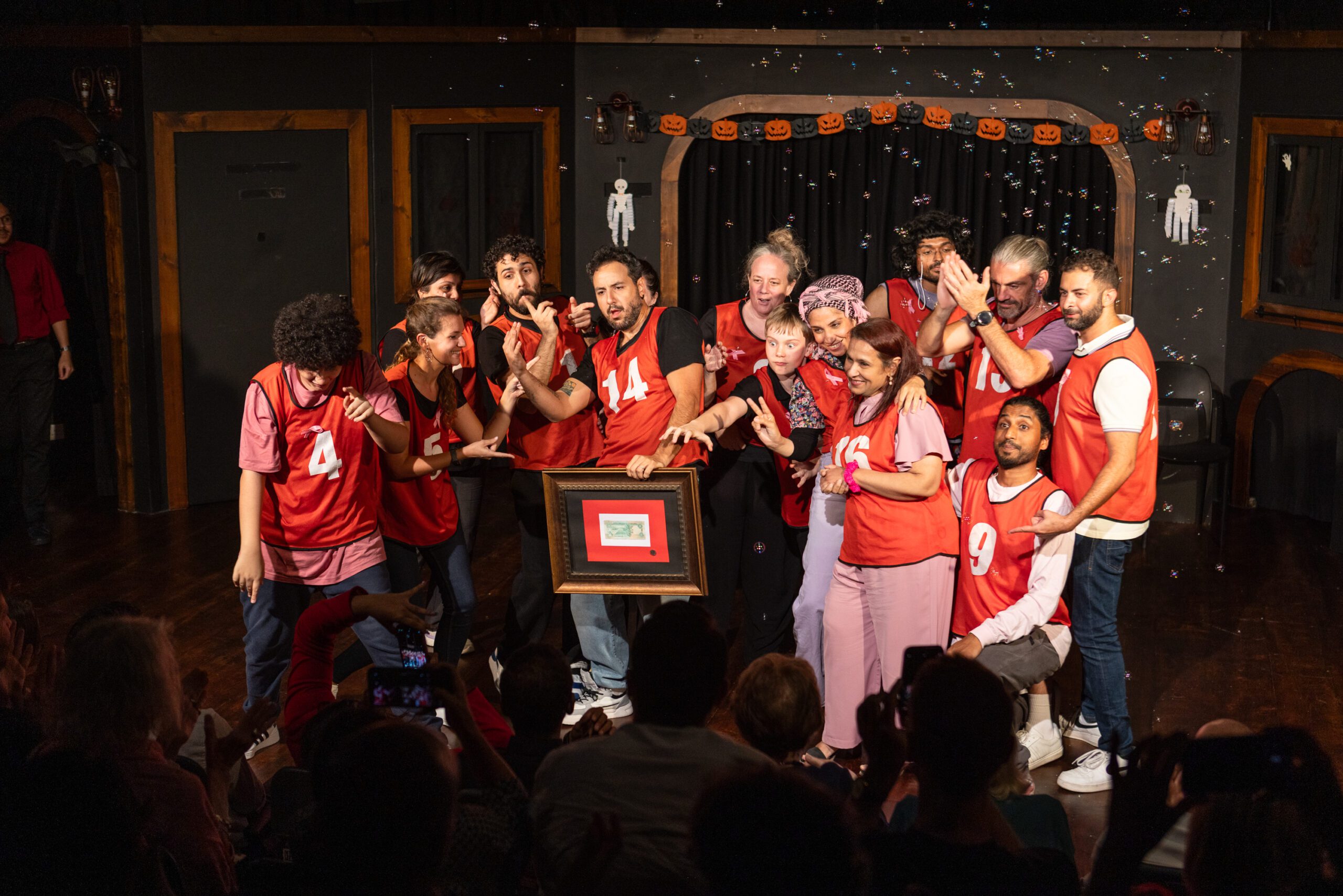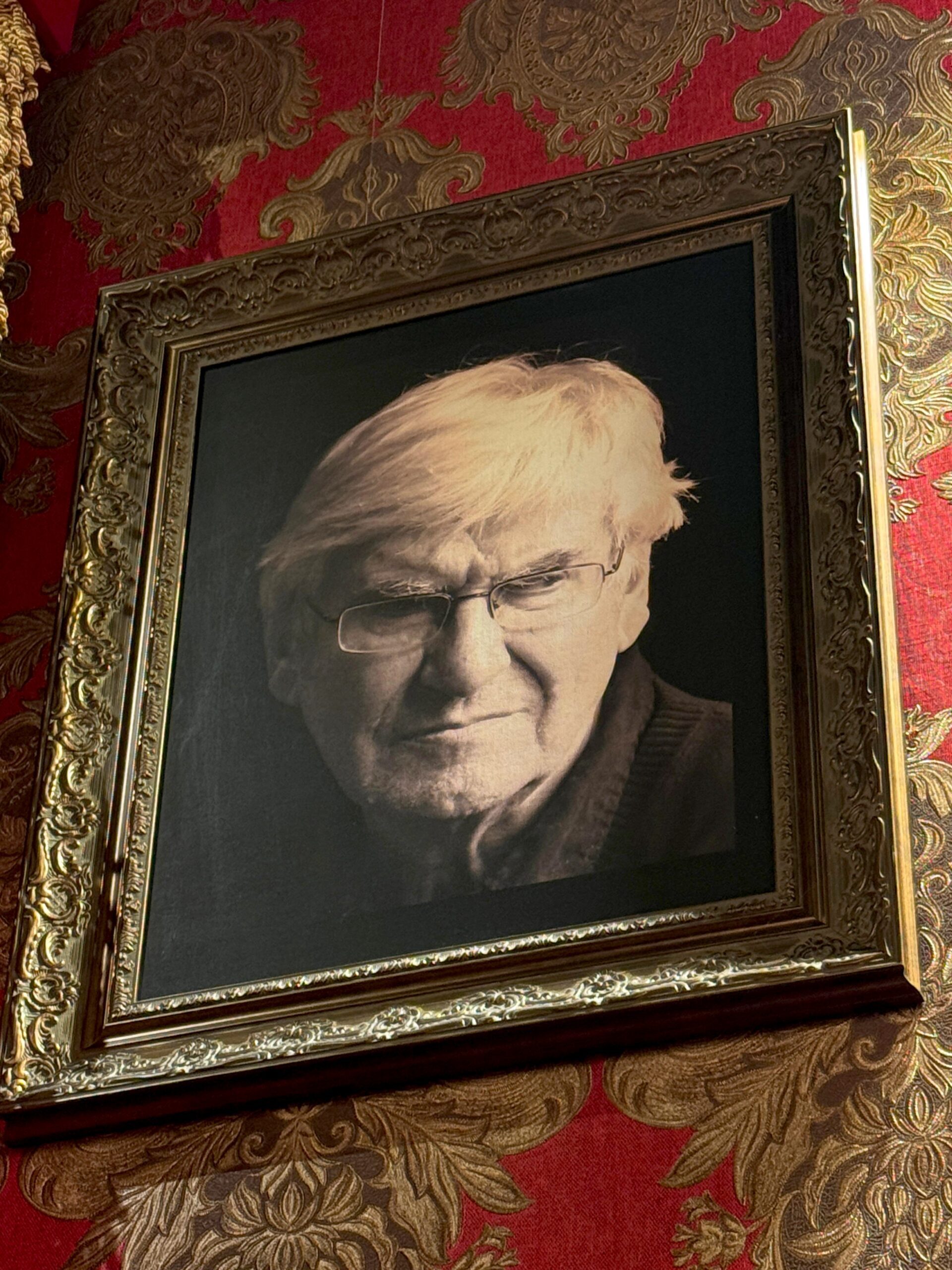
On February 21st, we celebrate the birthday of Keith Johnstone, the man who revolutionised improvisation, theatre, and how we think about creativity. If you’ve ever taken an improv class, played a theatre game, or laughed uncontrollably at a completely made-up scene, you have Keith to thank.
And if you’re thinking about trying improv but feel a little nervous—don’t worry. Keith would have expected you to be nervous. He was, too.
“I couldn’t see the point of theatre,” he wrote. “The actors were pretending to be other people, and I didn’t believe them for a second.” (Impro, 1979). Yet, he went on to reshape theatre itself by focusing not on scripted performances, but on improvisation—where the magic happens when you stop trying to be clever and start playing.
Keith’s Legacy and The Courtyard Playhouse
Keith didn’t just develop a new way of performing—he created an entirely new kind of theatre, one that valued spontaneity over perfection, playfulness over pretension, and collaboration over competition. In the 1970s, he founded Loose Moose Theatre in Calgary, where he developed Theatresports, a groundbreaking improvisation format that turned improv into an exhilarating, unpredictable, and deeply engaging experience for both performers and audiences.
At The Courtyard Playhouse, we carry this spirit of improvisation in our DNA. Our theatre was built on the same principles Keith championed—an open space for fearless creativity, where performers and audiences co-create in the moment, free from the pressures of getting it “right.” Every show, every class, and every laugh shared in our space is a testament to Keith’s influence and the enduring magic of his ideas.
The Fear of Looking Stupid (and Why You Should Get Over It)
Most people who try improv worry about “What if I look stupid?” But Keith’s response was simple: “You will.” And that’s why it works.
“People who say yes are rewarded by the adventures they have, and people who say no are rewarded by the safety they attain.” (Impro for Storytellers, 1999).
Improv isn’t about being funny, smart, or original—in fact, trying too hard to be any of those things will make you worse. What makes improvisation magical is that it thrives on mistakes, spontaneity, and surprises.
Keith noticed that when people were asked to create something—whether a joke, a character, or a scene—they judged their own ideas before saying them out loud. And, as a result, they froze. So, he developed exercises to rewire our brains to trust spontaneity.
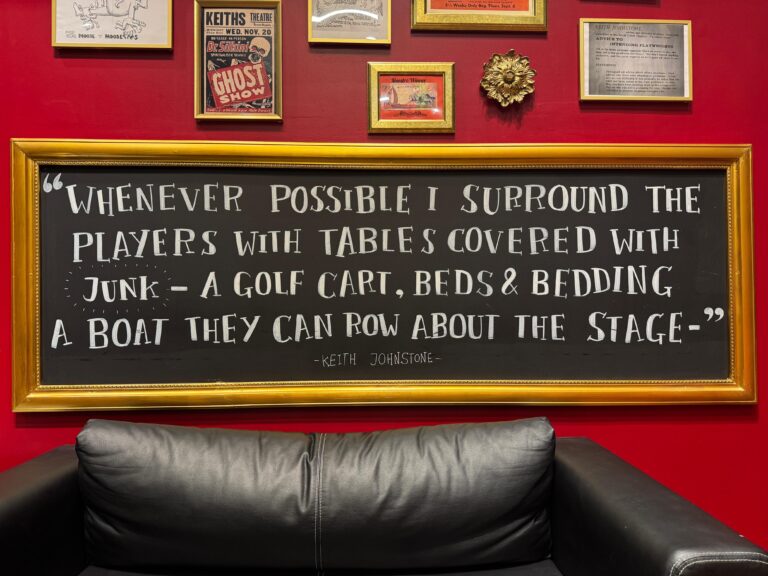
Lower Your Status, Loosen Your Brain
One of Keith’s most famous discoveries was that status isn’t just about money or power—it’s something we perform all the time. Some people walk into a room like they own it, others shrink in their seats, and most of us unconsciously adjust our status depending on who we’re talking to.
In his workshops, he experimented with status games, where actors had to subtly raise or lower their status in a scene—often with hilarious results.
“Many actors lower their status when they forget their lines,” he observed. “Instead of covering confidently, they shrink, become smaller, and invite the audience to pity them” (Impro, 1979).
His solution? Fail proudly. If you’re going to mess up, do it boldly.
If you watch great improvisers, they don’t look embarrassed when things go wrong. They embrace it. They lean into the absurdity and trust that their scene partner will turn their mistake into something brilliant.
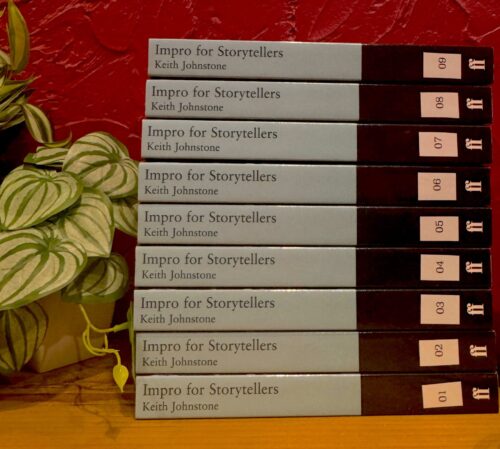
The Power of Being Obvious
One of Keith’s simplest yet most powerful ideas was this: be obvious.
Beginners often try to be “original,” which usually results in freezing up, forcing jokes, or saying something so random it derails the scene. But the best improvisers know that what seems obvious to you is often surprising to everyone else.
“The improviser has to realise that the more obvious he is, the more original he appears,” he wrote. “It’s like trying to walk normally on a tightrope. The more ‘normal’ you try to be, the weirder you look.” (Impro for Storytellers, 1999).
So don’t try to be wacky. Don’t reach for something clever. Just say the first thing that comes to mind. More often than not, it will be exactly what the scene needs.
Spontaneity is a Muscle, Not a Talent
A common myth is that some people are just naturally funny or naturally creative. Keith disagreed. He believed that spontaneity is something you can train, like a muscle.
“If you put an actor on stage and tell him to be ‘spontaneous,’ he probably won’t be able to,” he said. “But if you give him a simple game—like word association—he can play immediately.” (Impro, 1979).
That’s why most improv training starts with simple exercises. Games like Yes, And, Word at a Time Story, or Gibberish Conversations aren’t just fun—they’re designed to rewire your brain to respond without hesitation. The more you practice, the easier it gets.
Why Keith’s Ideas Matter More Than Ever
Keith Johnstone didn’t just teach people how to improvise. He taught people how to stop censoring themselves, how to trust their instincts, and how to bring joy into their creativity.
If you’ve ever been in a meeting and hesitated to share an idea, Keith’s work is for you.
If you’ve ever felt awkward at a social event, Keith’s work is for you.
If you’ve ever wanted to be more confident, spontaneous, or just have more fun, Keith’s work is for you.
And if you’re still hesitating about signing up for an improv class, here’s the truth:
You will look silly. You will fail. You will say ridiculous things.
And that’s the whole point.
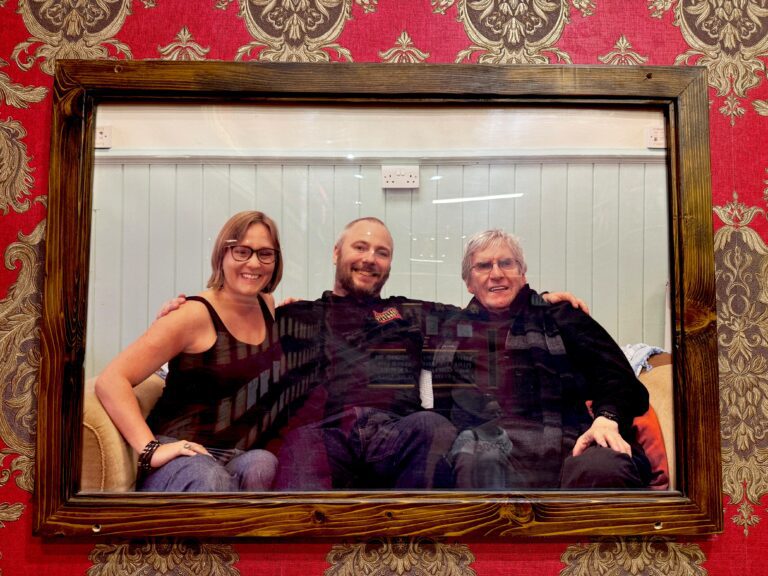
“There are people who prefer to say ‘Yes,’ and there are people who prefer to say ‘No.’ Those who say ‘Yes’ are rewarded with the adventures they have. Those who say ‘No’ are rewarded with the safety they attain.”
At The Courtyard Playhouse, we are proud to continue Keith Johnstone’s legacy, creating a space where improvisation is fearless, play is sacred, and spontaneity reigns supreme.
On Keith Johnstone’s birthday, the best way to celebrate his legacy is simple: Say ‘yes.’ 🚀🎭
Take an improv class. You’ll thank yourself later.
